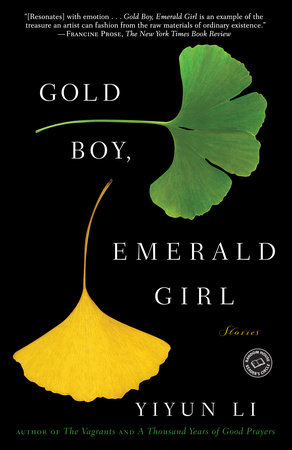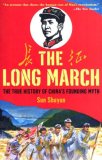Summary | Excerpt | Reviews | Beyond the book | Read-Alikes | Genres & Themes | Author Bio

The true story of how a small, terrified, lonely boy, plucked from his life in rural China, became one of the greatest ballet dancers in the world. One part Falling Leaves, one part Billy Eliot, this is an unforgettable memoir of hope and courage.
In 1961, three years of Mao's Great Leap Forward--along with three years of poor harvests--had left rural China suffering terribly from disease and deprivation. Li Cunxin, his parents' sixth son, lived in a small house with twenty of his relatives and, along with the rest of his family, subsisted for years on the verge of starvation. But when he was eleven years old, Madame Mao decided to revive the Peking Dance Academy, and sent her men into the countryside searching for children to attend.
Chosen on the basis of his physique alone, Li Cunxin was taken from his family and sent to the city for rigorous training. What follows is the story of how a small, terrified, lonely boy became one of the greatest ballet dancers in the world. One part Falling Leaves, one part Billy Eliot, Mao's Last Dancer is an unforgettable memoir of hope and courage.
A wonderful book; a bit sentimental in places but it's Li's story and he's free to tell it how he likes, and he tells it well. If you're a ballet aficionado you'll want to read every page, otherwise you'll probably want to skip over a few of the more detailed descriptions of ballet competitions - which are few in number anyway...continued
Full Review
(576 words)
This review is available to non-members for a limited time. For full access,
become a member today.
(Reviewed by BookBrowse Review Team).
At the age of 34 Li realized his career as a
dancer would soon be over, so he began to study at
the Australian Securities Institute (in between rehearsals and
performances) qualifying as a stockbroker two years later. Today he
lives in Melbourne, Australia with his wife
and three children and works as a stockbroker. He also finds
time to work with many charities, including
UNICEF.
He is an avid supporter of The Cochlear Research Institute in
Australia which conducts ongoing research and provides support to
those who cannot afford the implant. The cause is close to his
heart as his first child was born profoundly deaf and, at
four-...
This "beyond the book" feature is available to non-members for a limited time. Join today for full access.

If you liked Mao's Last Dancer, try these:

by Yiyun Li
Published 2010
In these spellbinding stories, Yiyun Li gives us exquisite fiction filled with suspense, depth, and beauty, in which history, politics, and folklore magnificently illuminate the human condition.

by Sun Shuyun
Published 2008
The Long March is Communist China’s founding myth, the heroic tale that every Chinese child learns in school. Seventy years after the historical march took place, Sun Shuyun set out to retrace the Marchers’ steps and unexpectedly discovered the true history behind the legend.
Music is the pleasure the human mind experiences from counting without being aware that it is counting
Click Here to find out who said this, as well as discovering other famous literary quotes!